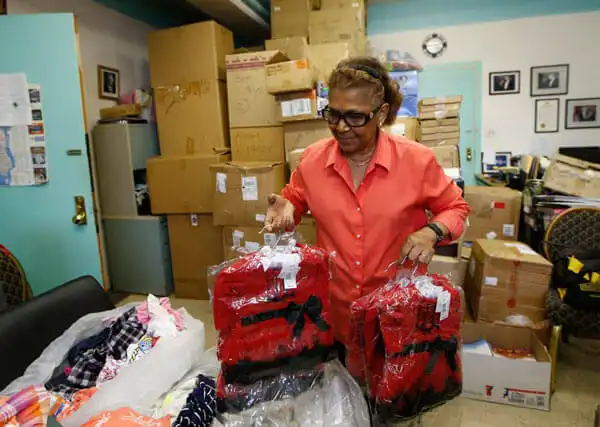Following a recent Daily News article that suggested Haitians and Jamaicans might be banned from this year’s West Indian Day Parade for not following the dress code, questions quickly arose within the Haitian community. To clarify the matter, Opa reached out to Jean Alexander, board member and director of marketing for the West Indian American Day Carnival Association (WIADCA).
In an interview with Opa’s Cheyna Pierre, Alexander firmly denied that any ban exists.
“No, there’s no ban,” Alexander stated. “There are just rules being enforced.”
 According to Alexander, the focus is on preserving the authenticity and cultural integrity of Carnival by ensuring participants wear costumes instead of T-shirts. “In Haiti, they have costumes, so why not here?” she said. “We’re not trying to exclude anyone. We’re trying to keep the culture alive. Carnival has been around for centuries. If we don’t maintain the spirit, it will go away.”
According to Alexander, the focus is on preserving the authenticity and cultural integrity of Carnival by ensuring participants wear costumes instead of T-shirts. “In Haiti, they have costumes, so why not here?” she said. “We’re not trying to exclude anyone. We’re trying to keep the culture alive. Carnival has been around for centuries. If we don’t maintain the spirit, it will go away.”
Alexander also addressed concerns that Haitian groups would need to provide their own security. She explained that this requirement comes directly from the City of New York, not from WIADCA. With the parade costing an estimated $300,000 to insure this year, the City is pressuring organizers to control crowd access and prevent people who aren’t part of official bands from jumping on floats or blocking the route.
As for costumes, Alexander stressed that participants don’t need elaborate outfits or expensive designs. “You can go to your closet and create one by adding flowers or feathers to something you already own,” she noted. The key requirement is coordination among float members and ground walkers.
Responding to the Daily News article, Alexander claimed her words had been twisted. She announced plans to release a press statement in the coming days to clarify her position and reassure communities that Haitians and Jamaicans are not being singled out.
Community Concerns
Despite Alexander’s reassurances, many within the Haitian and Jamaican communities remain uneasy. Several members have voiced frustration, arguing that while the rules are being presented as universal, they feel unfairly targeted. Critics say that Alexander, who is of Trinidadian descent, often appears to prioritize the interests of her own community while sidelining others.
Some community leaders have gone so far as to accuse her of trying to “blackball” Haitians and Jamaicans by creating stricter scrutiny of their participation compared to Trinidadian groups. “It’s not that we don’t want to respect Carnival traditions,” one Haitian participant explained, “but the way the rules are being enforced feels like we’re the ones being singled out.”
These perceptions highlight ongoing tensions within the broader Caribbean diaspora in New York, where issues of representation, inclusion, and cultural pride often overlap with Carnival celebrations.
Alexander reiterated that WIADCA’s intention is to preserve tradition, not to exclude. “We want people to always come back. We want to keep the festival’s spirit strong for future generations.”
But with the Haitian and Jamaican communities feeling underrepresented and mistrustful, the controversy shows no signs of disappearing quietly. As preparations for the festival move forward, all eyes will be on WIADCA to see how inclusively it handles one of the Caribbean diaspora’s biggest celebrations.
Photos courtesy of WIADCA

